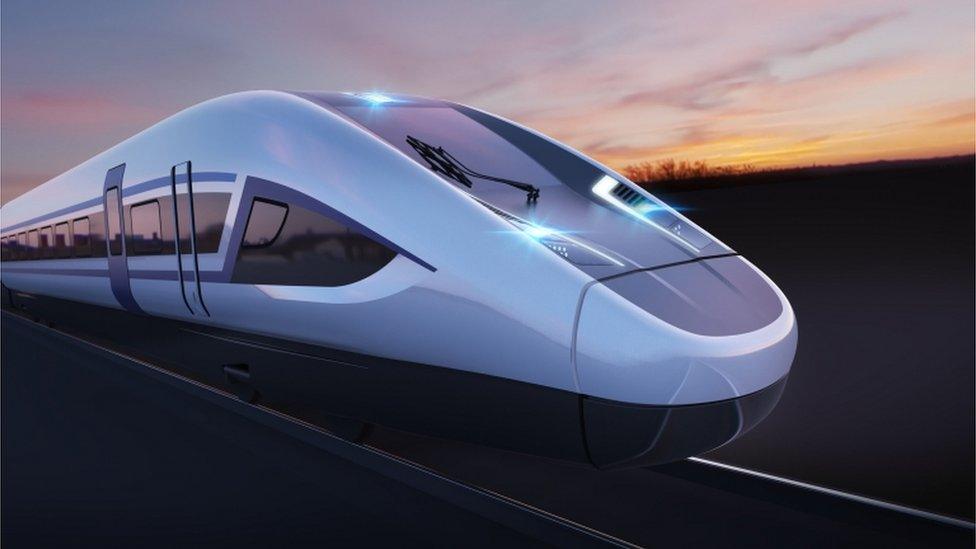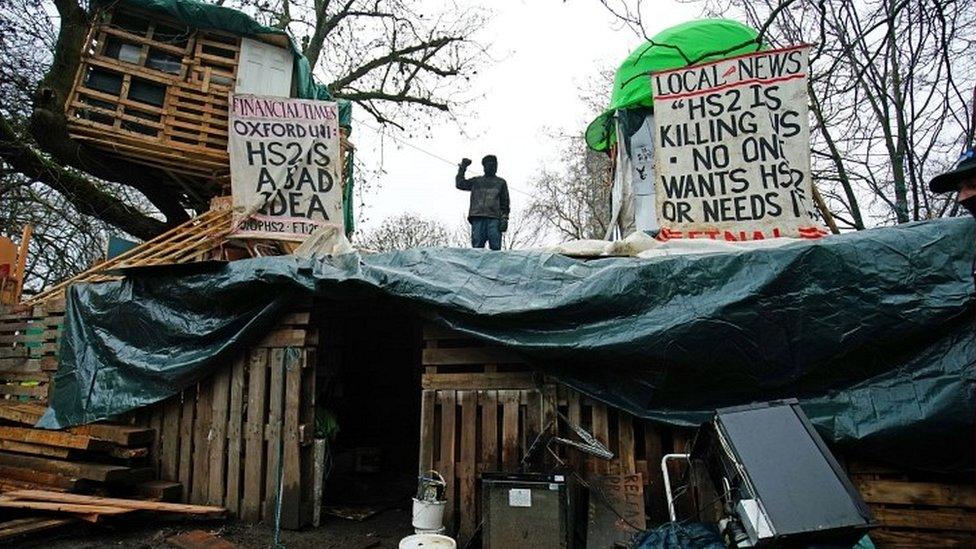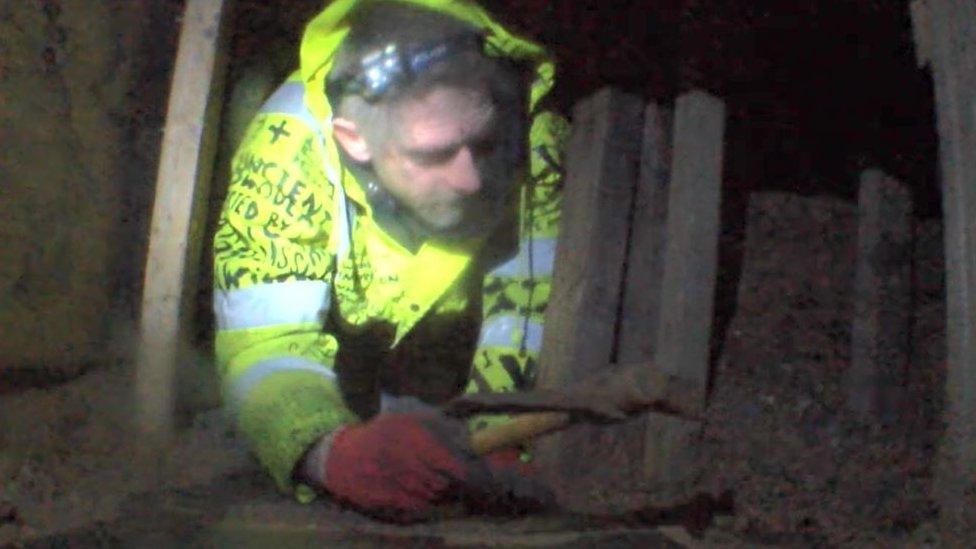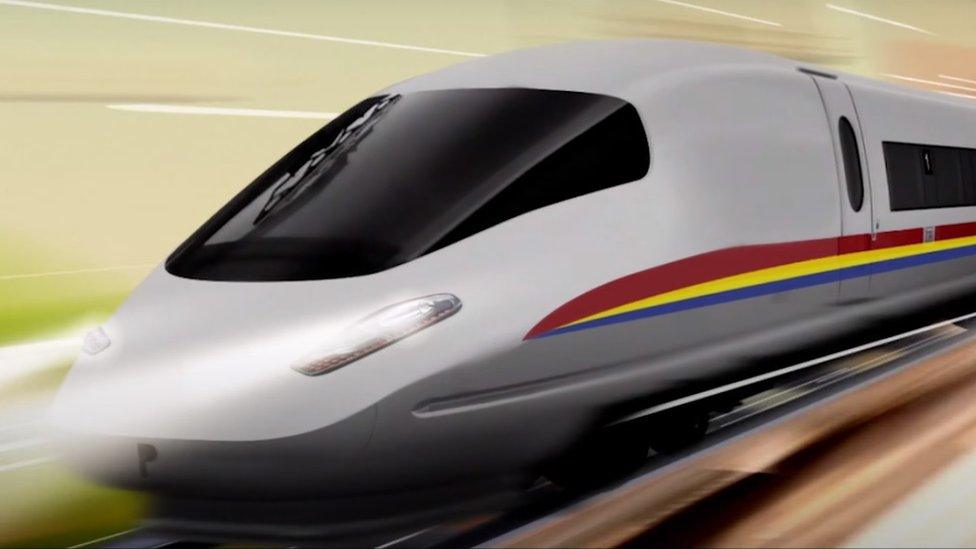HS2: Next phase of controversial rail network gets green light
- Published
- comments

The go-ahead for the next phase of Britain’s controversial HS2 high-speed rail network has been approved.
Phase 2A of the project will be built from the West Midlands to Crewe, and was given Royal Assent on Thursday.
Supporters of HS2 say it will spur economic growth, help level up the country, and provide greener transport.
But environmentalists say it will increase carbon emissions and can’t be justified now people have embraced video conferencing such as Zoom.
Transport Secretary Grant Shapps said: "Whatever your view of this project, HS2 is now a reality - heading north, creating jobs and building a brighter future for our country.
"This vital project is at the heart of the government's commitments to build back better from the pandemic, tackle the North-South divide and drive growth across the country.
"I look forward to seeing spades in the ground to get this section built and deliver the benefits of high-speed rail to the North as swiftly as possible."
But critics argue that the justification for building HS2 was ever-increasing rail passenger numbers. And the government now admits future passenger growth is unknowable.
'Vanity project'
HS2 Minister Andrew Stephenson recently said: "If the first reaction to the pandemic is to cancel major infrastructure projects committed to by successive governments now for more than a decade… that would have a chilling impact on the construction sector in the UK and inward investment.”

Analysis:
Caroline Davies, BBC transport correspondent
A year since the prime minister announced that HS2 would be built, another phase has been given the go ahead. But this project still has more hurdles to go.
While phase 2a was anticipated to be signed off, the rest of the proposed route - from Crewe to Manchester and the eastern leg, connecting Birmingham and Leeds - are both still in the works. Businesses and local politicians campaigning for these routes have called on the government to commit to the rest of the project to avoid an east-west divide in transport in the North.
The project still has its critics, from environmental campaigners to those who argue new capacity isn't needed with new remote ways of working.
Passenger services won't start on the first parts of the line until at least 2029, and arguments about the project aren't over yet.

MPs voted overwhelmingly for the project, but some still question its value for money.
Chesham and Amersham MP Dame Cheryl Gillan asked whether the cost could be justified when ministers “have not established that the future use of public transport will be at a level that will make this railway viable in any way, shape or form?”
Green MP Caroline Lucas called it a “vanity project”. She says travel patterns have been revolutionised during Covid, and won't return to previous levels. And she complained: “It’ll take decades for the project to have even a chance of becoming carbon neutral because of the emissions from building the line.
"Meanwhile dozens of ancient woodlands are being put at risk or damaged – the very woodlands we should be protecting to help tackle climate change.”
Green campaigners are still hiding out in tunnels under Euston station to make their protest against the scheme’s impact on the climate and wildlife.
Tony May, Emeritus Transport Professor at Leeds University, said: “Even on optimistic predictions HS2 takes 65 years from its completion before its carbon saving (through low-carbon trains) has offset the carbon costs of construction.
“So up to 2050 (the critical deadline for achieving nearly zero emissions) HS2 is a carbon burden on the country. It doesn't save carbon at all.” The company says it is working on smarter designs to reduce the carbon impact of the materials it uses.
The first phase of HS2 between London and the West Midlands is already well underway. There are 240 sites now active along the Phase One route.
HS2 says it employs over 13,000 people with 400 apprenticeships, and tens of thousands more jobs supported through the supply chain.

Campaigners have staged anti-HS2 protests in London and elsewhere.
Passenger services are scheduled to start between stations at London’s Old Oak Common and Birmingham Curzon Street between 2029-33. Phase 2A’s opening will coincide with the London–Birmingham route. HS2 A will carry six long-distance high speed services per hour.
Sara Williams, chief executive of Staffordshire Chamber of Commerce, said: “Extending the high speed line northwards will generate thousands of contract opportunities for local businesses and provide a vital boost for the Staffordshire economy.”
Critics say the government could have created far more jobs for the same amount of money by developing a labour-intensive national scheme to renovate leaky homes – an activity that would actively reduce carbon emissions.
- Published10 February 2021

- Published4 February 2021
